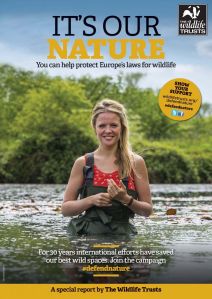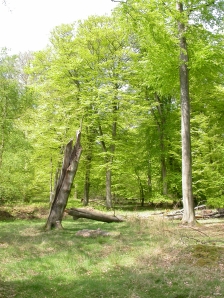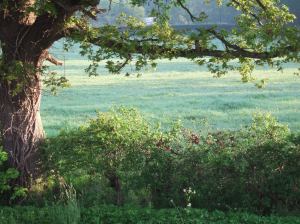Across Europe, including here in the UK, crucial nature laws protect our most precious wildlife. Together these ‘Nature Directives’ protect a network of wild places stretching across Europe. For over 30 years they have protected some of our best loved and most iconic landscapes. Some 800 of the UK’s special habitats – like the ancient woodland and heathland in the New Forest, the migratory birds in the Solent and Southampton Water and the iconic chalkstream habitats of the River Itchen – benefit from the protections they offer.
At Hampshire & Isle of Wight Wildlife Trust, we’ve found that these nature laws are essential in for example, stopping damaging developments like the proposals to build a new container port at Dibden Bay near Southampton, which threatened breeding habitat for coastal birds, and in protecting species from near-extinction like the otter.
It’s not just wildlife that depends on this legislation – we do too, for cleaner rivers and seas, for the vital habitats that support pollinating insects and for the natural places we can enjoy and spend time in. Without these laws our world would be a much poorer place.
Right now European Leaders are reviewing the Directives and asking people to give their opinion on them. There is concern among many charities that the review could be hijacked and protection for nature could be weakened under the guise of helping economic growth.
However a strong natural environment is the foundation for a functioning economy. It’s estimated that the network of wild areas these laws protect creates some €200-300bn worth of economic benefits per year to local economies. What’s more, undermining the protections for nature will just create more uncertainty over things like investment and development.
Moreover, the laws protect wildlife while encouraging ways of people and nature to live together in and around some of our most iconic landscapes. They’re good for wildlife, people and the economy.
Some two thirds of the UK’s species have declined over the last half century from loss of habitat already – and now climate change is threatening the survival of those that are left. So it’s vital that as many of us as possible say that we feel strongly about this and don’t want to see these laws weakened.
The Wildlife Trusts have joined 100 other charities and environmental organisations across the UK to help people respond to the consultation in support of the Nature Directives. This is to help send a clear and consistent message to the European Commission that people feel strongly about this, wherever they live.
We can’t let them roll back years of progress – to let them know your views visit: www.wildlifetrusts.org/defendnature before 24th July.
Please share this campaign with your friends and family. Use #defendnature, #naturealert and our campaign link: http://wtru.st/defendnature
 > Read our ‘It’s Our Nature: You can help protect Europe’s laws for wildlife‘ report to find out more.
> Read our ‘It’s Our Nature: You can help protect Europe’s laws for wildlife‘ report to find out more.
> Read our blog – Joan Edwards looks at what the Nature Directives do for people and wildlife here in the UK.
> Read the joint media release
> Read more background on the consultation from the European Commisson
*****







